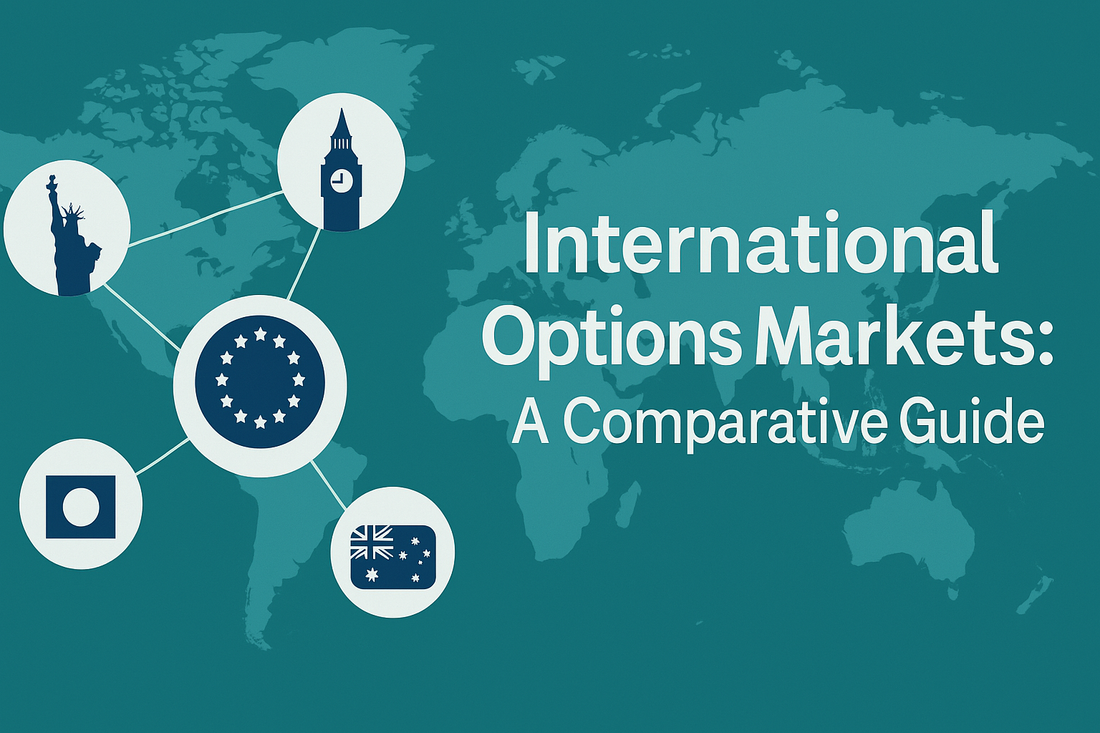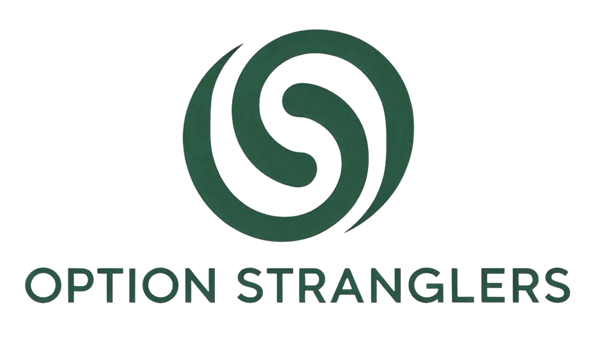
International Options Markets: A Comparative Guide
Keywords: global options trading, international options exchanges, regulatory environments, cross-border options strategies, global options market comparison
🌍 Introduction: Going Global with Options Trading
Options trading is no longer confined to Wall Street. As global financial markets mature and access broadens, traders now have opportunities to speculate and hedge across borders. From the Chicago Board Options Exchange (CBOE) to Eurex in Europe, to Japan’s Osaka Exchange and Singapore Exchange (SGX), the international options landscape is vast, dynamic, and increasingly interconnected.
This guide compares key international options markets, their regulations, differences in trading structures, and the unique risks and rewards of global diversification.
Let’s explore how to expand your strategy from local to global.
🌐 Section 1: Overview of Major Global Options Markets
🇺🇸 United States – CBOE & NASDAQ Options Market
- Largest and most liquid options market
- Offers equity, ETF, and index options
- Regulated by the SEC and CFTC
- Home of the VIX (Volatility Index) and SPX options
- Margin rules well-established, with advanced tools
Notable Instruments: SPX, QQQ, TSLA, AAPL options
Settlement Style: American-style for equities, European-style for indices
🇪🇺 Europe – Eurex (Germany) & Euronext (France/Netherlands)
- Major derivatives exchanges in EU
- Offers index and single-stock options (mostly cash-settled)
- Regulated under ESMA (European Securities and Markets Authority)
- Highly structured risk frameworks
Notable Instruments: EURO STOXX 50, DAX options
Settlement Style: Mostly European-style
🇬🇧 United Kingdom – London Stock Exchange (LSE) via IDEM & Turquoise Derivatives
- Offers limited equity options; more focused on institutional markets
- Regulated by the FCA (Financial Conduct Authority)
Notable Instruments: FTSE 100 index options
🇯🇵 Japan – Osaka Exchange (OSE)
- Part of Japan Exchange Group (JPX)
- Offers Nikkei 225 options, TOPIX options
- Asian time zone trading advantage for volatility overlap
- Regulated by JFSA (Japan Financial Services Agency)
Notable Instruments: Nikkei 225, mini options
🇨🇳 China – China Financial Futures Exchange (CFFEX)
- Market is developing and currently restricted
- Options on ETF indices now available
- Subject to heavy capital controls and regulatory oversight
🇸🇬 Singapore – SGX
- Offers MSCI index options and select equity options
- Active in the Asian time zone for global hedge strategies
- Fully regulated by the Monetary Authority of Singapore (MAS)
Notable Instruments: MSCI Singapore Free Index options
🇦🇺 Australia – ASX (Australian Securities Exchange)
- Well-developed but smaller volume
- Offers equity and index options
- Strong risk controls and investor protections
Notable Instruments: XJO (S&P/ASX 200 Index), BHP, CSL options
⚖️ Section 2: Key Differences Between Global Options Markets
📅 Contract Specifications
|
Region |
Expiry Style |
Multiplier |
Settlement |
Trading Hours |
|
US |
American/European |
100 shares |
Physical/Cash |
Extended (Pre/After) |
|
Europe |
European |
100 contracts or notional |
Cash |
Central European Time |
|
Asia |
Mostly European |
Varies |
Mostly cash |
Asia time zone |
🛡️ Regulation and Margin
- US: Reg T and Portfolio Margin; pattern day trading rule
- Europe: ESMA-driven leverage caps and margin tiers
- Asia: Varies widely (Japan = strict, Singapore = flexible)
📈 Liquidity and Spread
- US: Deep liquidity, tight spreads
- Europe/Asia: Varies per instrument, often wider spreads
📊 Tax Implications
- US: 60/40 rule on certain index options (capital gains treatment)
- Singapore: No capital gains tax for residents
- Europe: Country-specific; UK uses CGT, Germany uses flat tax
📈 Section 3: Opportunities and Strategic Benefits
⏰ Time Zone Diversification
- Trade around the clock across time zones
- Cover US earnings volatility overnight in Asia or EU
🔀 Cross-Market Arbitrage
- Take advantage of mispricing between markets (e.g., SPX vs Euro Stoxx)
- Requires fast execution and multi-broker access
🧯 Hedging Global Exposure
- Hedge international portfolios using local index options
- Example: Use Nikkei 225 options to hedge Japan ADRs
🚀 Access to Sector-Leading Global Stocks
- Trade options on BHP, Samsung, Tencent, and other global leaders
- Local exchanges offer access to homegrown giants not listed in US
⚠️ Section 4: Risks in International Options Trading
🌐 Currency Risk
- FX rate volatility can impact returns
- Use currency futures or FX options to hedge
🏛️ Regulatory Complexity
- Varying tax regimes and disclosure rules
- Ensure compliance with local regulators
💰 Capital Mobility
- Some countries restrict capital repatriation or impose taxes on gains
⚖️ Clearing and Settlement Risks
- Time zone mismatch can delay execution/settlement
- Use reliable brokers with global clearing infrastructure
🗺️ World Map Highlighting Major Options Centers

🧠 Final Thoughts: Your Global Trading Advantage
The modern options trader isn’t limited by geography. With proper education, tools, and risk awareness, trading across global options markets offers:
- Greater diversification
- Access to international events and volatility cycles
- A deeper playbook of hedging and income strategies
The key to success is understanding:
- Each market’s mechanics
- Regulatory environment
- Tax and currency considerations
Start small. Study market-specific nuances. Use demo accounts where available.
And remember, global doesn’t mean complicated—it means informed opportunity.
✅ Ready to Trade Across Borders Like a Pro?
At www.optionstranglers.com.sg we offer:
- ✅ In-depth live 1-1 sessions / group classes
- ✅ Trade examples and breakdowns
- ✅ Community mentorship and support
👉 Ready to upgrade your strategy and trade like a pro?
Visit www.optionstranglers.com.sg and start your journey to financial freedom today.
Your future is an option. Choose wisely.
⚠️ Disclaimer:
Options involve risk and are not suitable for all investors. Always consult with a financial advisor before investing.
